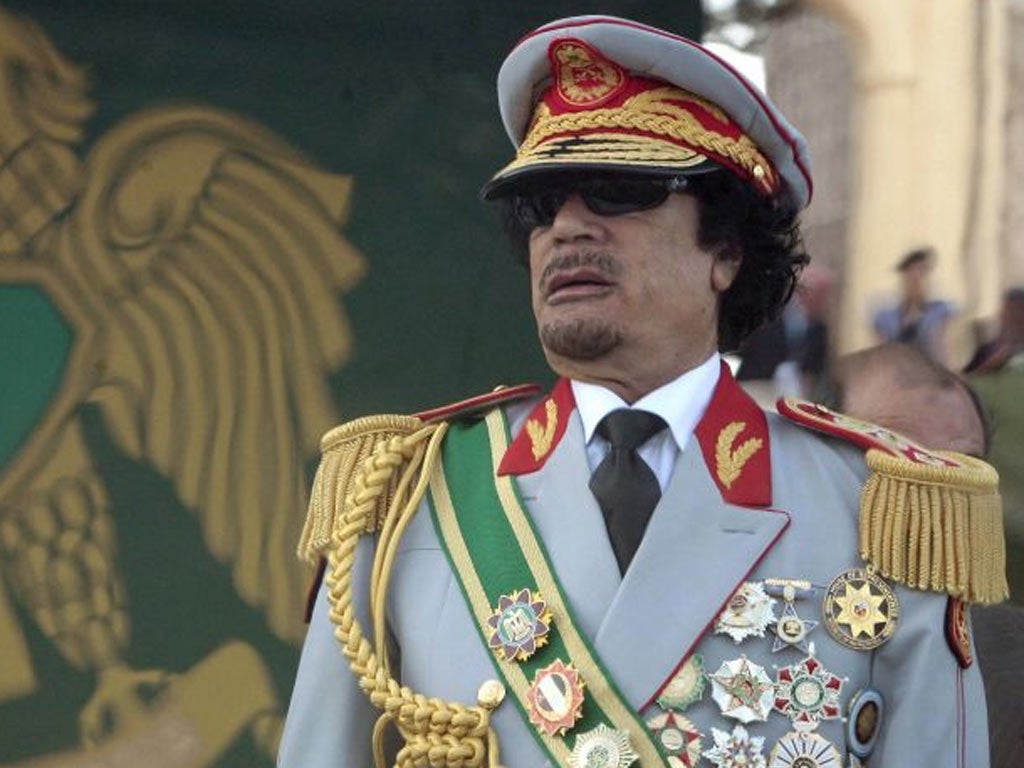Gaddafi planned suicide attacks on British officials
Targets included Western military advisers who helped turn the tide against tyrant's forces

A plot by Muammar Gaddafi's regime to carry out suicide bombings targeting the rebel leadership in Libya as well as British and other Western officials was foiled by the UK intelligence services. Among the targets of the attack, The Independent has learned, were UK military advisers sent to Benghazi to help the revolutionary fighters involved at the time in ferocious fighting with regime forces.
The team, led by Colonel Nick Kitson, a highly decorated veteran of Afghanistan, was involved in setting up liaisons with Nato. The alliance had started air strikes against loyalist troops – the vital intervention that changed the course of the war and ultimately delivered victory to the opposition.
The identity of Colonel Kitson as the leader of the British team in Libya had not been disclosed previously by the The Independent for security reasons.
The officer, who is now back in the UK, had commanded the 3rd Battalion The Rifles, in Sangin, the most violent frontline faced by British troops in Afghanistan, before being sent to Benghazi. Colonel Kitson was tasked with setting up communications and helping organise the rebel military in the east of the country at the turning point of the conflict.
A successful attack by the regime on the British and other foreign officials at the time, in April and May of this year, would almost certainly have led to groundswell of questioning about the mission in the West and doubts about further involvement.
The Foreign Secretary William Hague disclosed yesterday that MI6 and GCHQ – the Government's "eavesdropping" centre – had discovered the plan to assassinate the leadership of the fledgling National Transitional Council (NTC) and its international helpers. Mr Hague said the agencies had played a role in ensuing the ending of Colonel Gaddafi's 42-year-old reign.
According to security sources, the operation was under the personal command of Abdullah Senussi, Colonel Gaddafi's brother-in-law and the regime's intelligence chief.
In that period, a number of car bombings took place in Benghazi with the rebels blaming the Gaddafi regime for the attacks.
Join our commenting forum
Join thought-provoking conversations, follow other Independent readers and see their replies
Comments